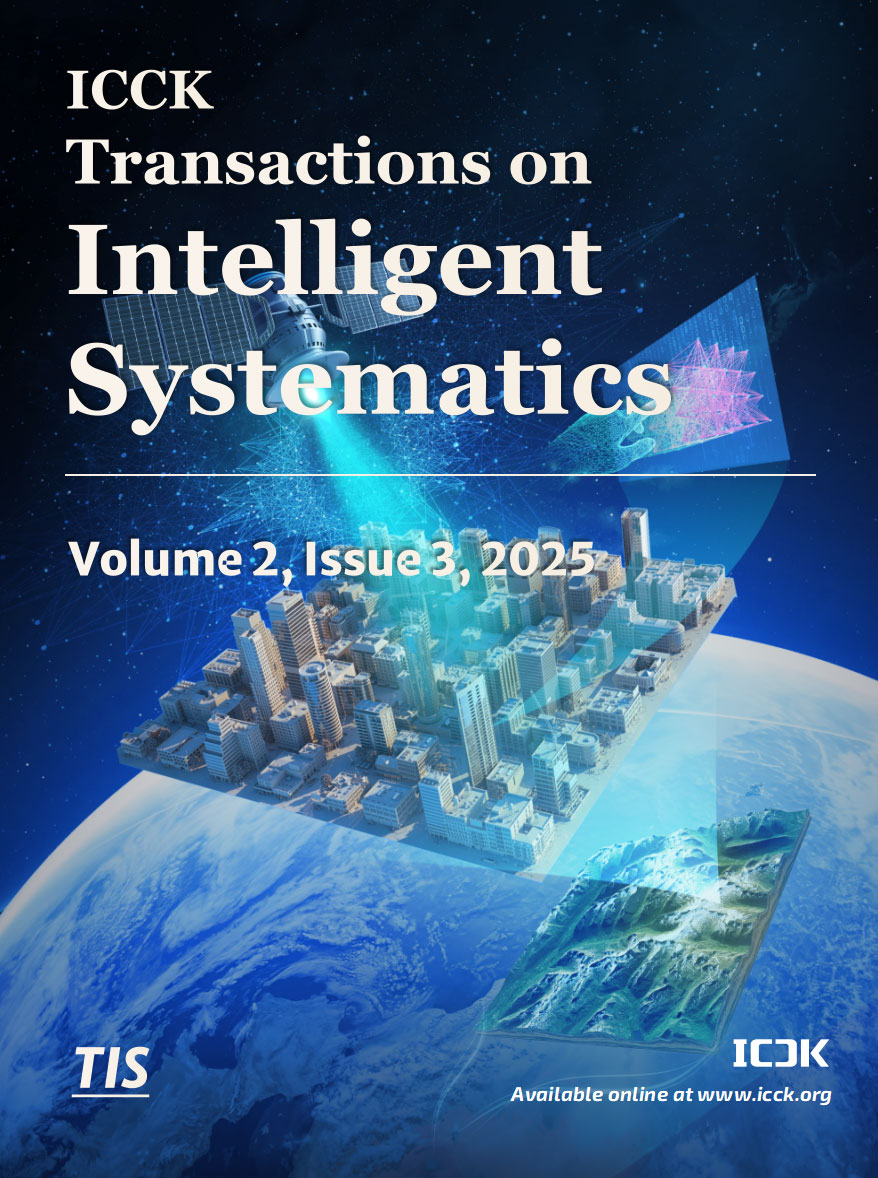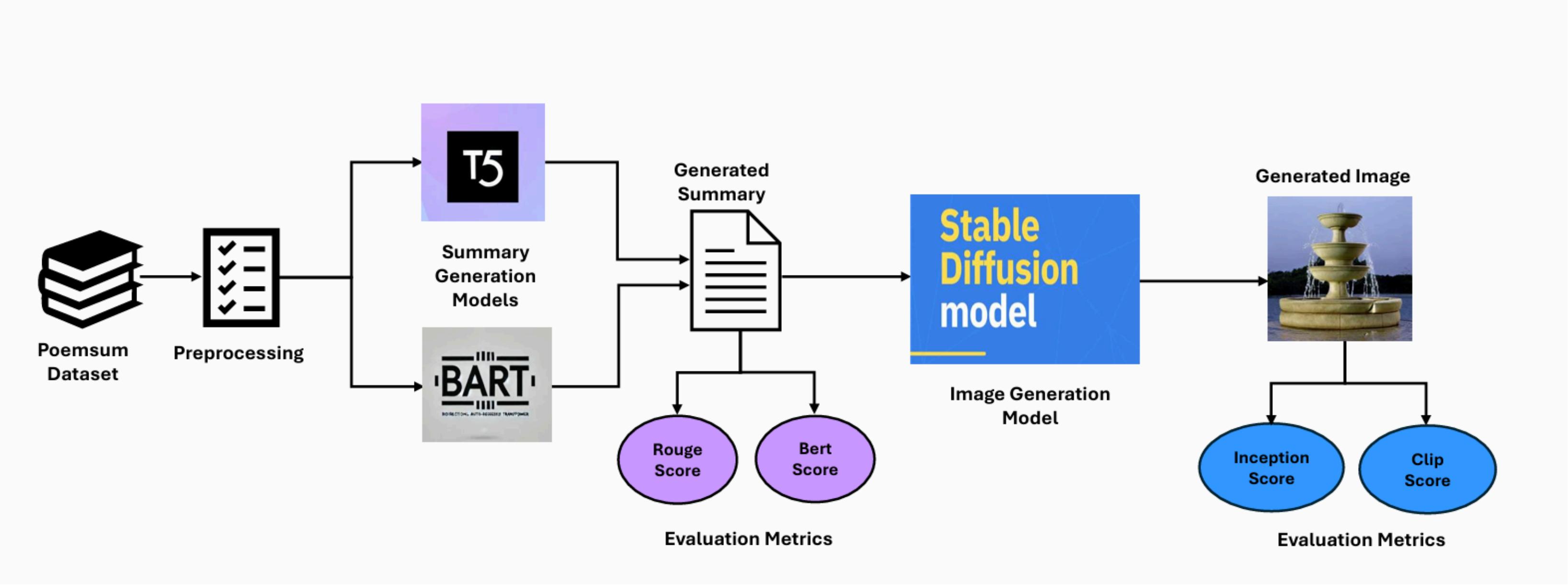Abstract
Poetry, as a profound and creative form of human expression, presents unique challenges in interpretation and summarization due to its reliance on figurative language, symbolism, and deeper meanings. Building upon the PoemSum dataset, which introduced the task of poem summarization, we extend its scope by exploring multimodal applications. Specifically, we implement and fine-tune two state-of-the-art abstractive summarization models—BART and T5—to generate concise and meaningful interpretations of poems, focusing on figurative summarization that captures metaphorical and symbolic elements inherent in poetic language. These summaries are then transformed into visual representations using two diffusion-based generative models: Stable Diffusion for high-quality image generation. Our approach evaluates the effectiveness of abstractive summarization models in capturing the essence of poetry and demonstrates how diffusion models can translate abstract poetic themes into visually compelling images. Evaluation results show that the BART model outperforms T5 in summarization, achieving a high ROUGE score of 41.90 and a BERTScore of 85.22. For image generation, the Inception Score (IS) of 7.63 ± 0.62 reflects high visual quality and diversity, while the CLIP (Contrastive Language-Image Pre-training) Score of 29.48 indicates strong alignment between textual summaries and generated images.
Data Availability Statement
Data will be made available on request.
Funding
This work was supported without any funding.
Conflicts of Interest
The authors declare no conflicts of interest.
Ethical Approval and Consent to Participate
Not applicable.
Cite This Article
APA Style
Yousaf, J., Iqbal, M., Pervaiz, I., Ismail, M., Islam, T. U., & Jadoon, K. K. (2025). Capturing Poetic Essence: Text Summarization and Visual Generation via Multimodal. ICCK Transactions on Intelligent Systematics, 2(3), 160–168. https://doi.org/10.62762/TIS.2025.405393
Publisher's Note
ICCK stays neutral with regard to jurisdictional claims in published maps and institutional affiliations.
Rights and Permissions
Institute of Central Computation and Knowledge (ICCK) or its licensor (e.g. a society or other partner) holds exclusive rights to this article under a publishing agreement with the author(s) or other rightsholder(s); author self-archiving of the accepted manuscript version of this article is solely governed by the terms of such publishing agreement and applicable law.


 Submit Manuscript
Edit a Special Issue
Submit Manuscript
Edit a Special Issue

